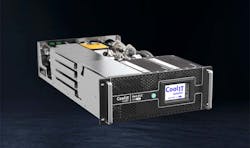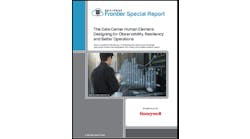CoolIT Systems, developer of cooling solutions for data center, HPC, and servers has agreed to be acquired by global investment firm KKR, specifically through their Global Impact investment strategy, which focuses on technologies and markets that can build a more sustainable and prosperous world, while, of course, generating value for its investors.
The deal represents a vote of confidence from investors in the future of liquid cooling, which could benefit from the surging interest in artificial intelligence (AI) and growth of high-density hardware in data centers. Large investment firms have been more active in the liquid cooling sector as the technology seeks to move beyond its historic niches in high-performance computing (HPC) and cryptocurrency.
The cooling solutions developed and deployed by CoolIT help organizations achieve higher performance and energy efficiency by removing heat from critical components via liquid cooling technologies. They offer everything from cold plate to full water-cooled data center rack options. This approach focuses on ensuring optimal operating temperatures for the hardware and can reduce the dependence on traditional air conditioning systems, which can lead to reduced costs and a minimized environmental footprint.
This isn’t KKR’s first foray into the data center industry as it was involved in the largest M&A deal in the history of the data center industry when it partnered with Global Infrastructure Partners in late 2021 to acquire data center developer CyrusOne.
“Increasing data and computing needs are on a collision course with sustainability considerations – the data center industry is expected to consume 8% of the world’s energy by 2030," said Kyle Matter, Managing Director and Head of KKR’s Global Impact team in North America. "As a firm, we have committed more than $17 billion to digital infrastructure since 2011 and deeply appreciate the mission critical role that it plays in enabling our economy>”
“KKR shares our perspective on the significant opportunity ahead for liquid cooling. Having access to KKR’s expertise, capital and resources will put us in an even better position to keep scaling, innovating and delivering for our customers.” said CoolIT CEO Steve Walton. As part of the transaction CoolIT employees will be made part of the ownership of the company via an equity ownership program. This KKR strategy, originally implemented in 2011, reflects the belief that employee engagement makes for a stronger company.
The acquisition can benefit future product development and expansion
According to Evan Kaufman, Director at KKR, “By combining our manufacturing and decarbonization expertise with CoolIT’s track record of product innovation, we expect to further scale its best-in-class direct liquid cooling solution to meet the anticipated demand for higher density, more energy efficient data centers.” Identifying the need for cooling technologies to expand into new directions and industries he continued “Importantly, we look forward to working with Steve and the entire CoolIT management team to invest additional capital and resources into expanding its cooling solutions across new applications, customers and end markets.”
While no dollar amount for the acquisition has been announced, it is expected to close in Q2 2023, subject to all the customary regulatory and closing issues.
While mergers and acquisitions in the data center industry are not uncommon, KKR’s choice of investing in a player focused on cooling efficiency reflects on not just the need for the data center business to increase energy efficiency, sustainability, and operational effectiveness, but also the overall responsibility of the industry on a global scale to take a leadership role in building for the future.






